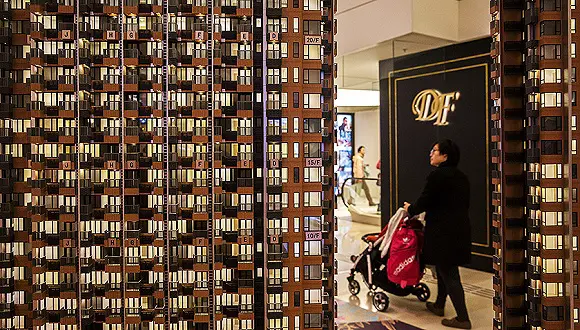Chinese Foreign Minister Wang Yi, also a state councilor, arrived in Japan on Sunday as the two countries prepared to resume high-level economic dialogue for the first time in eight years.
Wang and his Japanese counterpart Taro Kono will co-chair the dialogue, which is seen as a sign of warming bilateral ties, on Monday.
The China-Japan High-level Economic Dialogue was established in 2006. It was first held in 2007 in Beijing and again in Tokyo in 2009. It was suspended after the third round of talks in 2010.
What happened at the third dialogue?
The third dialogue was held in August 2010 in Beijing. China and Japan acknowledged the growing interdependence of the two economies, and agreed to promote a mutually beneficial relationship.
While the two countries discussed cooperation in such areas as green economy, energy, manufacturing, financial services and agriculture, Japan raised a number of issues to the Chinese side.
The Japanese Foreign Ministry said these issues included regulations on the export of rare earth, automobile-related policies, the protection of intellectual property and requests to improve the business environment in China.
Unlike at the previous two meetings, a new round of talks was not announced.
What else happened in 2010?
China overtook Japan as the world's second-largest economy during the second quarter of 2010.
Official data showed a faltering Japanese economy growing by just 0.1 percent in Q2, with GDP of 1.28 trillion US dollars – lower than China's economic output of 1.33 trillion dollars. By the end of the year, China's economic output hit over six trillion dollars to eclipse Japan and become the world's second-largest economy.
In September 2010, a Chinese fishing boat collided with two Japanese patrol ships near the Diaoyu Islands, a chain of uninhabited islands in the East China Sea.
Diaoyu Islands.
The diplomatic row quickly worsened after Japanese authorities arrested and threatened to prosecute the captain of the boat.
China summoned Japan's ambassador twice in 24 hours to protest about the captain's arrest, while Japan insisted the fishing boat refused to leave the waters despite a warning. The situation flared up, with anti-Japanese protests in China and anti-Chinese protests in Japan.
The rift between the two countries with regard to the Diaoyu Islands widened in 2012, when the Japanese government decided to "nationalize" the islands by purchasing them from a private Japanese owner in an effort, Tokyo claimed, aimed at diffusing the territorial dispute.
This move evoked strong reactions from the Chinese government and public. Widespread anti-Japanese protests and riots took place and Beijing later suspended its side of the official exchanges.
Beijing began sending coastal ships into waters around the Diaoyu Islands after the 2012 row to assert sovereignty of the islands.
The 'history problem'
Since Japanese Prime Minister Shinzo Abe's Liberal Democratic Party came to power in 2012, it has failed to forge closer relations with China.
The strains of the bilateral ties go back to Japan's wartime conduct over 80 years ago. Arguments over wartime memorials, history textbooks, the worship of the Yasukuni Shrine as well as the intent to revise the Pacifist constitution are all rooted in Japan's wartime crimes and how it has been reflecting over it.
The People's Liberation Army (PLA) at a memorial ceremony at the Nanjing Massacre Museum in Nanjing, China, December 13, 2014.
While China has repeatedly urged Japan to stick to history and reflect on its wartime aggression, Japan has refused to apologize to Chinese victims.
Japan has apologized for waging aggression and oppressing its neighbors, but those apologies have been fumbling and often undercut by revisionist statements.
In his speech to the US Congress in May 2015, Abe didn't offer his own apology for Japan's war crimes as his predecessor Prime Minister Tomiichi Murayama did.
China reacted angrily, as its state news agency Xinhua said: "The nationalist Japanese leader once again failed to deliver an unequivocal apology the world deserves for his country's heinous systematic war crimes seven decades ago."
In his speech to mark the 70th anniversary of the defeat of Japanese aggression in 2015, Abe didn't say "I'm sorry" to repeat a previous apology. Instead he said Japan has repeatedly expressed remorse and that future generations should not be “predestined” to apologize themselves.
The remarks further damaged China-Japan political ties.
Does politics override economic ties?
While the relationship has been plagued by the political rows and dispute, bilateral trade and investment remained strong in the past decade.
In 2007, China became Japan's largest trading partner – China is Japan's second largest export destination and the largest import partner.
Here's what China-Japan trade relations look like in two charts:
Businesses from both countries have high hopes as Chinese top diplomat Wang Yi visits Japan for the first time in over eight years.
But critics say Japan's consideration of joining a US complaint to the World Trade Organization about China's intellectual property practices, as it tries to avoid a potential trade dispute with Washington, may cloud any signs of warming ties.
(CGTN)
Related Stories:
Chinese, Japanese trade ministers pledge to enhance economic cooperation
Chinese, Japanese foreign ministers meet on bilateral ties
 简体中文
简体中文

